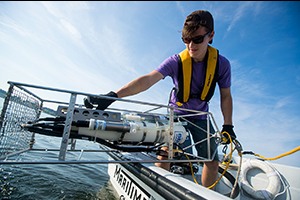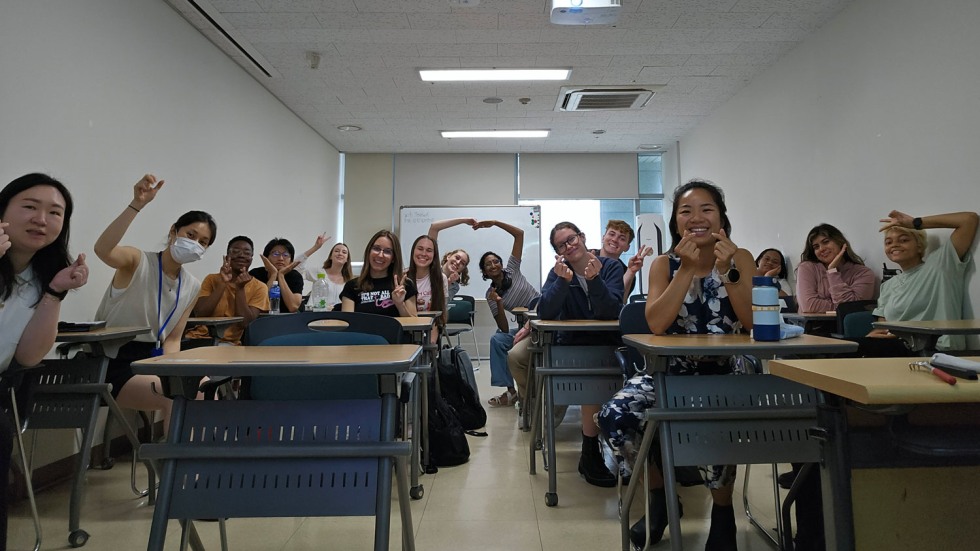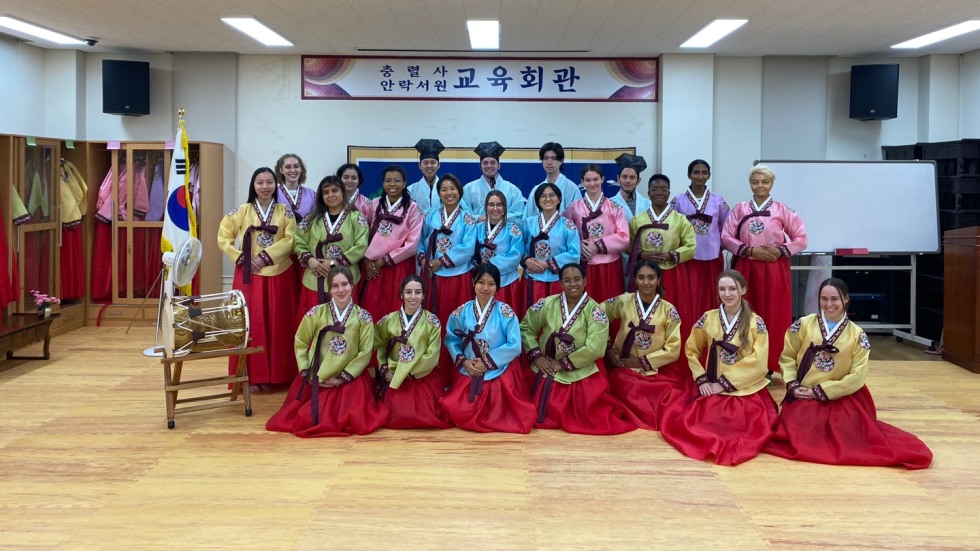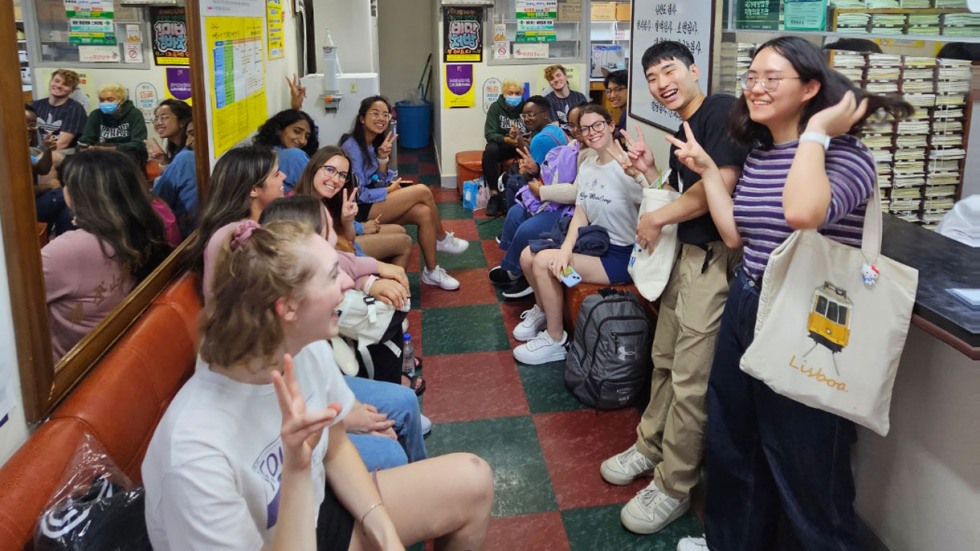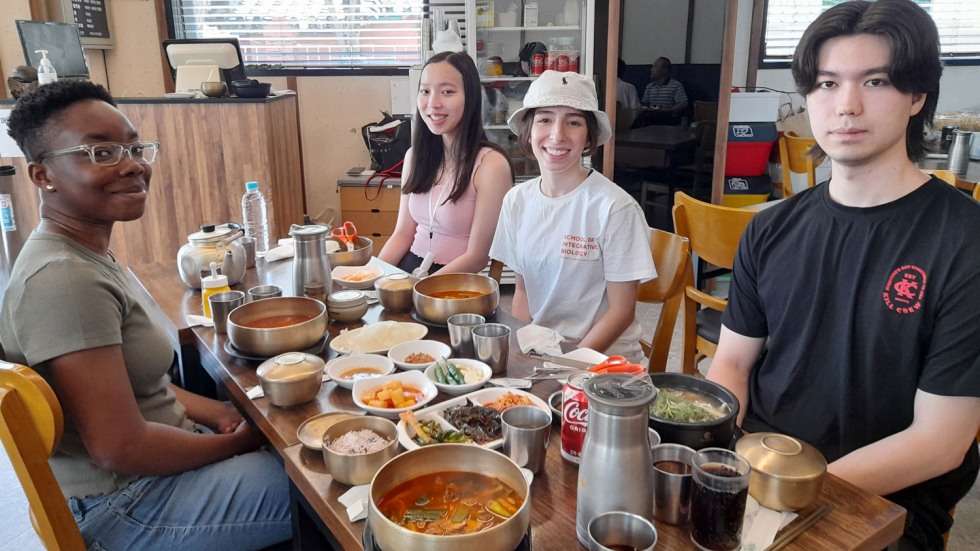PROVIDENCE, R.I. [Brown University] — Della Tsivor has always lived in cities. She spent her early childhood in Accra, Ghana, before moving to New York City with her family.
So when the rising Brown University junior arrived in Busan, South Korea’s second-largest city, this summer, she didn’t feel total culture shock. Busan’s residential high-rises, some so large that they’re viewed as neighborhoods in their own right, reminded her of similar housing developments in the center of Accra. And the ways in which technology is fully integrated into city citizens’ daily lives reminded her of life in New York, where phone apps grant people access to restaurant discounts, money-management tools and the subway.
But one aspect of life in Busan did shock Tsivor: the law-abiding pedestrian culture.
“You won’t find a single person here who jaywalks,” Tsivor exclaimed in disbelief. “On my first day, I saw a bunch of pedestrians waiting for the walk signal, even though there were no cars passing in any direction. You’d never see that in New York!”
Tsivor is one of 25 students spending the summer in Busan as part of the U.S. Department of State’s Critical Language Scholarship Program. The highly competitive scholarship, which provides financial assistance for students who want to travel abroad to study languages essential to America's engagement with the world, accepts only 10% of applicants each year.
Tsivor said she has Brown’s Center for Language Studies to thank for her success. According to CLS Director Jane Sokolosky, the center provides application assistance to Brown students every year, advising them on personal essays and other supplemental materials. With help from center staff, eight students from the University won the scholarship this year; they’re now scattered across multiple continents studying Swahili, Arabic, Portuguese and more.
Each morning, Tsivor attends intensive Korean language classes at Busan National University. In the afternoons and evenings, she studies, explores the city and takes part in organized program activities that put her language skills to the test. Activities thus far have included Korean cooking classes, visits to significant historical sites and a chance to try on the hanbok, a traditional Korean outfit often worn to weddings and other formal occasions.
